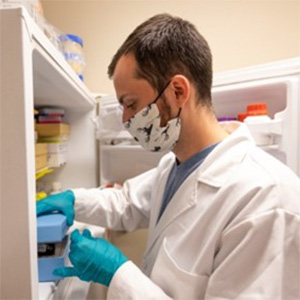The Accelerated Master’s Program (AMP) in Public Health: Environmental Health at the Indiana University School of Public Health-Bloomington (SPH-B) enables motivated students to enhance their bachelor’s degree by earning an M.P.H. in Environmental Health in just one year.
How does it work?

Eligibility and application process
To be eligible for the AMP in Environmental Health, you must:
- Be a third-year (junior status) IU Bloomington student
- Have a GPA of 3.0 or above
- Be on track to complete one of the following degrees:
- B.A. or B.S. Anthropology
- B.A. or B.S. Biology
- B.A. or B.S. Chemistry
- B.A. or B.S. Human Biology
Prospective students must complete a two-part application process.
- Part 1: Submit the SOPHAS Express application, and be sure to include:
- Transcripts
- Statement of purpose
- Letters of recommendation
- Part 2: Submit the IU Graduate School application.
- Contact sphgrad@iu.edu with any application questions.
Key program benefits include:
- Pursue your bachelor’s and master’s degrees consecutively, maintaining academic momentum and staying fully immersed in your studies without interruption.
- Enjoy a smooth transition from undergraduate- to graduate-level coursework, simplifying your academic journey.
- Complete both degrees in a shorter timeframe, setting you apart from graduates with only a bachelor’s degree and giving you a competitive advantage in the job market.
Environmental health professionals work in a variety of settings, including:
- State, county and city health agencies
- Environmental consulting companies
- Private corporations
- Federal government
- International organizations
- Nonprofit organizations
- Academia (colleges and universities)
An environmental health specialist is a general term for someone who inspects environmental health systems to make sure they are in compliance with local, state and federal regulations. These regulations are set by the government to keep citizens safe and healthy. Responsibilities often include:
- Reviewing permits
- Collecting and interpreting data
- Investigating complaints
- Monitoring
- Educating
- Performing inspections

